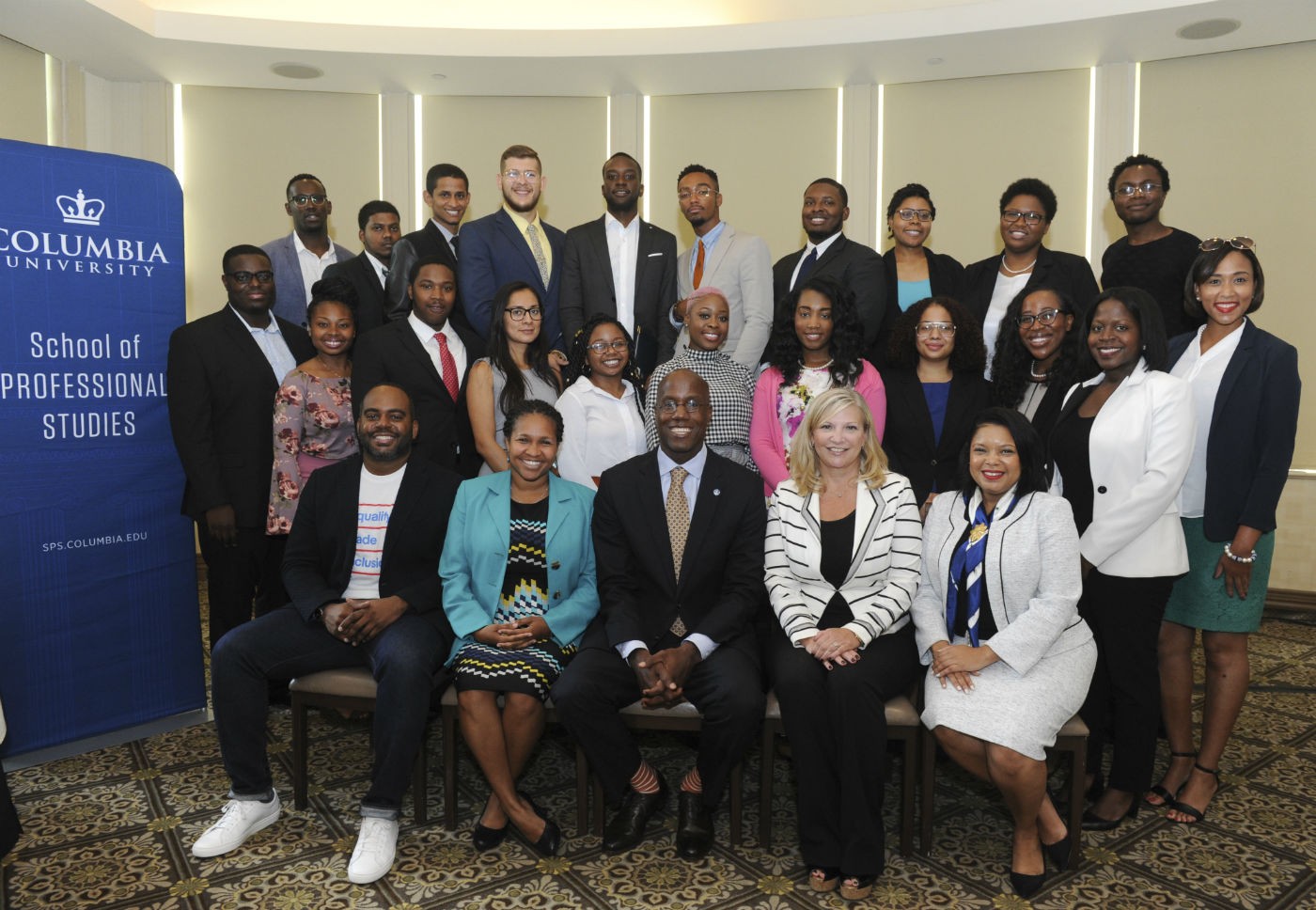Columbia Pioneers HBCU Fellowship Initiative

Diversity in the workforce remains a salient issue in the United States. According to Fortune.com, Fortune 500 companies employ 17.5 percent of America’s workforce, but only 3 percent of these companies share full diversity data, suggesting that diversity may not always be a priority. Yet the Harvard Business Review reports that diverse firms are 35 percent more likely to have financial returns above their national industry median, 45 percent more likely to report market share growth, and 70 percent more likely to report they captured a new market.
With the demonstrated success of diversity in the workplace, and the larger effort by Columbia University (CU) to provide programming for an underserved population, CU—by way of its School of Professional Studies (SPS)—has introduced the Historically Black College and University (HBCU) Fellowship Initiative.
“CEOs and senior executives consistently lament that maintaining a diverse workforce is an increasingly insurmountable challenge,” said Jason Wingard Ph.D., dean and professor, School of Professional Studies. “The HBCU Fellowship Initiative identifies and develops a diverse talent pool, creates a direct pipeline of market-ready students for our corporate partners, and establishes a foundation for a successful career trajectory for fellows.”
The first cohort of HBCU Fellows included 21 exemplary students from a range of HBCUs including Morehouse College, Howard University, Spelman College, Hampton University, Xavier University, and others. Program participants are in the top academic ranks of their class and are required to submit a letter of recommendation from their alma mater to be considered for the fellowship. The number of applicants has tripled since the program’s inception.
When asked about the caliber of student they accept, Dr. Tatum Thomas, associate dean of student affairs at SPS, articulated that fellows are identified through a multifactored assessment that includes academics, professional promise, and community engagement. This well-rounded individual proves to be a valuable addition to Columbia’s academic and social community.
Alongside its mandate to build the pool of highly qualified students from HBCUs seeking professional careers, the HBCU Fellowship Initiative is part of a larger quest to provide programs for underserved populations to access higher education. Fellows receive free tuition and housing for one year (the duration of their master’s program). Participants can obtain master’s degrees in the areas of applied analytics, bioethics, construction administration, enterprise risk management, nonprofit management, sports management, and strategic communication.
The program’s support does not stop at access. HBCU Fellows learn together and experience New York City as a cohort. They receive support from each other and from the CU community. In addition, fellows receive one-on-one career coaching, personalized internship assistance, résumé critique, and mock interviews throughout their tenure at CU. Academic support offered includes mandatory meetings with academic directors, fall luncheons with prominent speakers, and coordinated study breaks.
In the same vein as CU’s attempts to change the narrative of the lack of diversity in the workforce, fellows are also encouraged to act as agents of change within their own spheres of influence. The initiative has a community service component in which fellows volunteer with local Harlem nonprofits such as the Harlem Children’s Zone (HCZ), Harlem YMCA, and others.
While volunteering at HCZ, HBCU Fellow Thibault Twahirwa found that he was an inspiration to teenagers as he helped them with college applications. After learning of his educational trajectory—graduating from an HBCU, serving as a research assistant at MIT, interning at Goldman Sachs, and then securing a scholarship to an Ivy League graduate program—the teens saw a real-life example of what they too could accomplish, given the proper resources. Thibault, having majored in physics at Morehouse and currently in the Applied Analytics Program at the School of Professional Studies, now wants to use his skill set to become a project manager and advocate for underdeveloped countries.
Including this community service component in the framework of the fellowship speaks directly to its methodical design. The HBCU Fellowship curates an ideal experience for students from diverse backgrounds who are invested in themselves, their community, and thereby the world at large.
For more information on the HBCU Fellowship Initiative, visit http://sps.columbia.edu/hbcu.
This article was originally published in the Spring/Summer 2018 issue of The Columbia Newsletter.